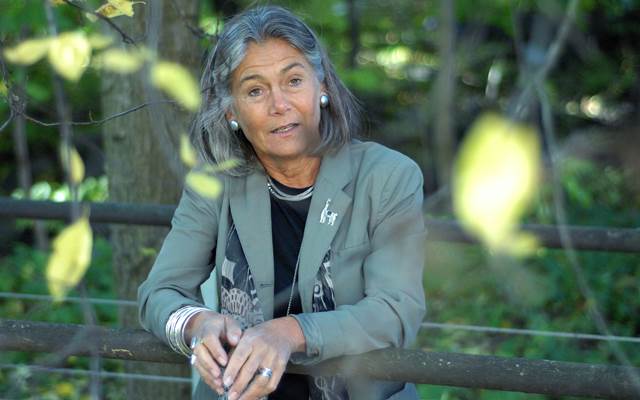“It still amazes me every time, how people living in extreme conditions in detention centres, facing severe maltreatment and torture, can greet us with a welcoming attitude of respect, politeness and appreciation for the work we do” - Nora Sveaass reflecting on her many SPT visits to detention centres around the world.
Ms. Sveaass is a clinical psychologist by education, and an associate professor at the University of Oslo. She has worked with torture victims and refugees for many years, and was a member of the Committee against Torture from 2005-2013. She was elected as the Nordic candidate for the SPT in 2014. Ms. Sveaass shared her experiences from her work on the SPT and emphasised the importance of spreading awareness of their mandate and work.
The SPT has its mandate in the OPCAT. The Protocol emphasises prevention rather than reaction, and seeks to cooperate with national authorities to increase transparency and national preventive capacities. OPCAT was the first international instrument explicitly obliging states to establish bodies tasked with regular and unannounced visits to places of detention in order to prevent torture and ill-treatment. The OPCAT establishes a system of regular visits undertaken by independent international and national bodies, to places where people are deprived of their liberty.
The international body established by the OPCAT is the SPT. The SPT consists of 25 independent and impartial experts from different backgrounds and regions of the world. They are elected by state parties to the OPCAT for a four-year mandate. The body can visit any place of detention at any time, without any allegation of abuse, in states that have ratified the Protocol. This includes access to installations and facilities, as well as to all relevant information. The SPT visits police stations, prisons, detention centres, mental health and social care institutions and any other places where people are or may be deprived of their liberty, and are able to interview private persons in a confidential manner. They also have an advisory function which involves providing assistance and advice to State Parties on the establishment of the National Preventive Mechanism (NPM).
The NPM is the national body established by OPCAT. This is an independent expert body (or several local bodies) tasked with monitoring places where freedom of movement is curtailed, through regular visits. The NPM must be independent and entitled to make unannounced and unhindered visits to every place in the country where people are deprived of their liberty. Their mandate also needs to include the competence to review existing and proposed legislation. NPMs should gather information during visits, analyse the legal and practical framework, query government and authorities, and recommend measures to reduce the risk of torture and ill-treatment.
Norway ratified the OPCAT in 2013 and appointed the Parliamentary Ombudsman for Public Administration as the NPM. With this mandate, the Unit for Prevention of Torture and Inhumane Treatment in Places of Detention was established in 2014. The work of the unit consists of undertaking regular visits to places where persons are deprived of their liberty, including police stations, psychiatric institutions, childcare institutions and prisons. The visits occur both with and without prior notice. Visits and reports are published regularly on the Ombudsman website. To assist the work of the ombudsman, an Advisory Group consisting of 15 representatives from organisations and professional groups working with deprivation of liberty and human rights has been established.
Find more info on the SPT here.
Find more information on the Norwegian National Preventive Mechanism here.
*Full name of Convention: Convention against Torture and Other Cruel, Inhuman or Degrading Treatment or Punishment
